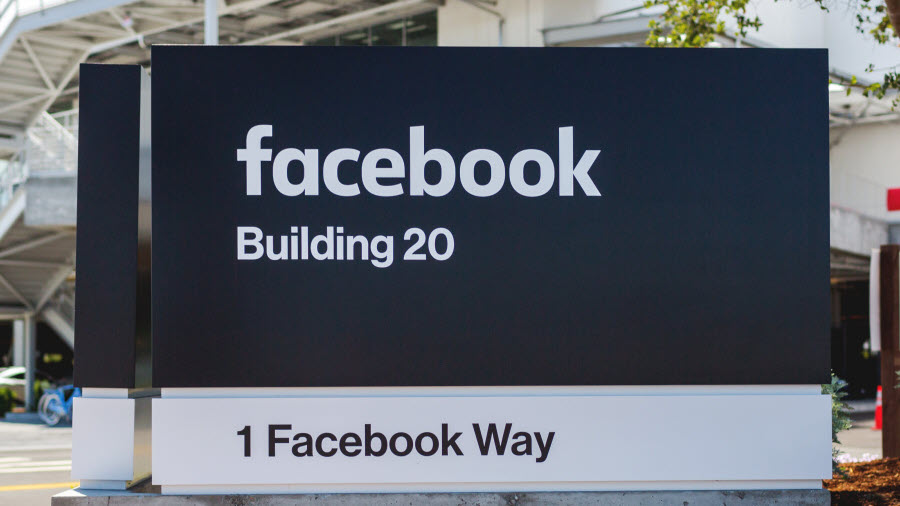HUD Charges Facebook Ad Platform with Discrimination

The smarter way to stay on top of broadcasting and cable industry. Sign up below
You are now subscribed
Your newsletter sign-up was successful
Add the Department of Housing and Urban Development to the list of those who have issues with Google.
HUD Thursday said it is charging Facebook with violating the Fair Housing Act by "encouraging, enabling, and causing housing discrimination through the company’s advertising platform."
That came only a week after Facebook settled complaints and lawsuits with the ACLU, Communications Workers of America, and the National Fair Housing Alliance over allegations that its paid ad platform allowed for discrimination in employment, housing, and credit advertising.
Related: Facebook Settles Civil Rights Claims Against Ad Platforms
HUD alleges that the social media platform "unlawfully discriminates based on race, color, national origin, religion, familial status, sex, and disability by restricting who can view housing-related ads on Facebook’s platforms and across the internet. Further, HUD claims Facebook mines extensive data about its users and then uses those data to determine which of its users view housing-related ads based, in part, on these protected characteristics."
The Fair Housing Act prohibits discrimination based on "race, color, national origin, religion, sex, disability, or familial status" in housing and housing-related services, including in online ads.
The charges stem from an investigation following HUD's filing of a formal complaint against Facebook last summer.
The smarter way to stay on top of broadcasting and cable industry. Sign up below
“Facebook is discriminating against people based upon who they are and where they live,” said HUD Secretary Ben Carson in a statement. “Using a computer to limit a person’s housing choices can be just as discriminatory as slamming a door in someone’s face.”
The charge will be adjudicated by an Administrative Law Judge (ALJ) unless any party wants it heard in a federal district court. An ALJ can award damages for harm and can impose injunctive relief, equitable relief, and attorneys fees, HUD points out, while a federal judge could also award punitive damages.
"We’re glad to see a government agency finally taking action against Facebook. Discriminatory advertisements, groups, and speech have existed and been protected on the platform for far too long without consequence," said Sarah Miller, co-chair of Freedom from Facebook. "It has been over a year since the Cambridge Analytica scandal, and after a year-long string of other data-related scandals, we once again call on the FTC to step up and address Facebook’s violated consent decree by breaking up its monopoly and imposing strong privacy regulations."
Facebook has been on the hot seat in Washington over everything from the Cambridge Analytica scandal and other data privacy issues, to Russian election interference, political ad disclosures, to allegations of not doing enough to curb hate speech while doing too much to curb conservative speech.
Facebook had not responded to a request for comment at press time, but following its settlement of the civil rights group suit, COO Sheryl Sandberg blogged that its policies "already prohibit advertisers from using our tools to discriminate." Instead, she said, it would "do better."
"Housing, employment and credit ads are crucial to helping people buy new homes, start great careers, and gain access to credit," said Sandberg. "They should never be used to exclude or harm people. Getting this right is deeply important to me and all of us at Facebook because inclusivity is a core value for our company."
“Facebook’s role in facilitating and encouraging discriminatory housing advertisements is a clear violation of the Fair Housing Act," said Free Press policy counsel Gaurav Laroia. "HUD’s action today is commendable, if not overdue.
“Facebook should be condemned for facilitating these violations and perpetuating inequity and segregation in our society. But this problem isn’t limited to Facebook. Online advertisers and major tech companies have been getting away with practices that deny people their basic civil rights for far too long. The algorithms that power the micro-targeting of ads on these sites have been used to deny people opportunities in education, housing, jobs and lending — all areas where our civil-rights laws were designed to prevent discrimination."
“The case against Facebook is an invitation to fundamentally reassess the business model that facilitates and encourages these practices across way too many online platforms.”
Contributing editor John Eggerton has been an editor and/or writer on media regulation, legislation and policy for over four decades, including covering the FCC, FTC, Congress, the major media trade associations, and the federal courts. In addition to Multichannel News and Broadcasting + Cable, his work has appeared in Radio World, TV Technology, TV Fax, This Week in Consumer Electronics, Variety and the Encyclopedia Britannica.

